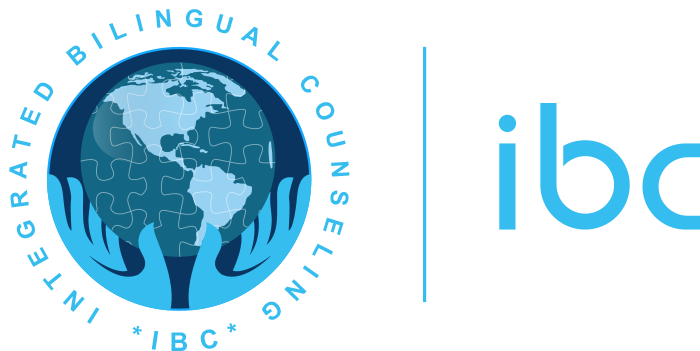
Immigration Evaluations
At IBC, we conduct evaluations for immigration cases such as psychosocial evaluations, mental health evaluations, and hardship evaluations. A full description of each one is as follows:
Psychosocial evaluation is a comprehensive summary that considers a variety of factors including psychiatric and physical illness, description of the problem, legal status, psychological testing, assets and resources, the prognosis of the outcome, clinical formulation, plan, and recommendations for treatment.
Mental health evaluation is an assessment in which one of our top licensed psychotherapists will check to determine if you have a mental illness. The process entails gathering oral and collateral information as well as completing questionaries to provide a provisionary diagnosis. Recommendations will be made upon the findings and the need for such evaluation.
Hardship evaluation is when a US citizen or legal permanent resident applies for a waiver on behalf of a loved one considering that deportation would result in extreme hardship. The purpose of conducting such an evaluation is to determine and explain all family members’ difficulties if deportation took place.
These types of evaluations are recommended by courts, immigration attorneys, and other professionals to understand individuals’ extenuating circumstances.
At IBC are a group of licensed bilingual and bi-cultural clinicians conduct these assessments with the uniqueness of considering your cultural background and its influence on your behavior.
Call us for a free consultation.
Meet Our Team
Our Licensed Psychotherapists

José Villafuerte, LCSW
Executive Director
I specialize in helping couples who deal with…

Mayra Aguirre, LCSW
Clinical Director
I specialize in working with children, families and women who…

Marisol Orth, APRN
Associate Prescriber
I provide medication management to clients with…

Roberto Castellón, LCSW
Psychotherapist
I specialize in working with children, families and adults…

Cecilia Segura, LCSW
Psychotherapist
I am Cecilia Catherine, a bilingual Licensed Clinical Social Worker...

María Cisneros, LCSW
Psychotherapist
Maria Cisneros, LCSW, is a bilingual Licensed Clinical Social Worker...

Astrid Thompson, BS
Virtual Manager
Astrid Thompson is the owner and director of VBBM...
The methods we use
are highly effective…
Here are some of the testimonials from our clients
Rates and Insurance
At IBC, we currently accept Medicaid (Husky), Anthem BlueCross BlueShield, United Health Care and Cigna. Please consult with your insurance plan to find out whether mental health benefits are covered. When placing an inquiry with us about services please, have the following information ready:

Insurance Company
Member ID#
Group ID#
Co-Pay and Deductible
Insurance Phone Company
Our current psychotherapy rates for uninsured clients are $120 per 50 minutes session for uninsured clients.
Our current rates for medication management are $250 for an evaluation and $180 for follow-up visits. We are also accepting Medicaid (Husky).
Additionally, we accept clients who have been victims of crimes and who may qualify for (Office of Victim Services) OVS services.
Psychotherapy Sessions
Clients' Goals Achieved
Star Ratings
Rated #2 by Top Rated Local
Frequently Asked Questions
How do I pay for psychotherapy sessions?
You can pay for psychotherapy sessions using your medical insurance. We accept Medicaid (Husky), Anthem BCBS, United Health Care and Cigna. We also accept payments out of pocket and offer a sliding fee scale for those facing financial hardship. Click here for a full description of our rates and fees.
Do you offer in person and telehealth sessions?
Yes, we do offer both modalities, in person at our office suites and telehealth.
What can I expect in my first session?
You can expect to meet one of our top licensed psychotherapists whose been matched based on their level of expertise in the area of your concern. The assigned therapist will conduct a complete evaluation to determine your strengths, issues, goals, and objectives.
How long does therapy take?
Therapy is tailored based on the needs of each individual. But short-term treatment ranges from 4 and up to 8 sessions, during long-term treatment ranges from 12 and up to 24 sessions or even longer.
Will you prescribe medication?
As part of the assessment process, all our clients, ages 16 and up, insured under Medicaid (Husky) and self-pay, undergo an evaluation with our Advanced Practice Registered Nurse (APRN) who will make recommendations for medications if necessary and collaborate with you.
Do you provide medication management only?
Yes we do. Please follow this link to learn more about the conditions we treat and our policies.
Do you conduct disability evaluations such as short-term disability, FMLA, SSI, etc.?
No we don't.
Do you conduct forensic evaluations for legal purposes?
No we don't.
Records requests:
Under the Health Insurance Portability and Accountability Act (HIPAA), IBC charges reasonable cost-based fees in advance for providing medical records to clients (45 CFR 164.524(c)).
- A fee of $30 for administrative costs.
- Fees for copying documents:
- $1 per page for the first 20 pages
- $0.90 per page for pages 21 through 100
- $0.80 for each page copied over 100 pages
Treatment summary and letters:
If you ever need a treatment summary or a letter for any litigation purposes, please know that IBC therapists can and will only lay out the facts, which can be detrimental to the therapeutic relationship, given that the summary or letter might not necessarily be in your favor. Nonetheless, if requested, IBC will charge a flat fee of $180, payable in advance.
Court related matters:
As stated above, IBC highly discourages clients from having their therapists subpoenaed because the records will only lay out the facts, which might not necessarily be in your favor. If one of our therapists is subpoenaed to testify or provide records involving a minor, the therapeutic relationship is effectively ended, and IBC will not continue providing services to that family.
If a client fails to consider IBC’s recommendations, the following fees are in effect:
-
Preparation time (including submission of records): $180 per hour (billable in 15-minute increments).
-
Phone calls: $180 per hour (billable in 15-minute increments).
-
Depositions: $180 per hour (billable in 15-minute increments).
-
Time required in Giving Testimony: $180 per hour (billable in 15-minute increments).
-
Mileage: 0.56 per mile
-
Time away from office due to depositions or testimony: $180 per hour (billable in 15-minute increments).
-
All attorney fees and costs incurred by IBC therapists as a result of the legal action.
-
Filing a document with the court: $120.
-
The minimum charge for a court appearance is $1200.
-
IBC requires a retainer of $1200 due 72 hours in advance.
If a subpoena or notice to meet an attorney is not received within 72 hours, IBC will charge an additional $250. If the case is reset with less than 72 business hours' notice, then IBC reserves the right to charge the client $400 in addition to the retainer.
Also, IBC reserves the right to double the above fees if the therapist has scheduled plans to be out of town.
Do you conduct ADHD evaluations?
Neither we conduct ADHD evaluation nor we provide treatment.
How soon will I see a therapist?
Once you contact us and determine that you are eligible for our services, one of our top licensed psychotherapists will be assigned to you and contact you in less than 24 hours.
What psychotherapy interventions do you offer?
Cognitive Behavioral Therapy (CBT): is a short-term, goal-oriented psychotherapy treatment that takes a hands-on, practical approach to problem-solving. Its goal is to change patterns of thinking or behavior behind people's difficulties and change the way they feel.
Rational Emotive Behavioral Therapy (REBT): previously called rational therapy and rational emotive therapy, is a comprehensive, active, directive, philosophically and empirically based psychotherapy which focuses on resolving emotional and behavioral problems and disturbances enabling people to lead happier and more fulfilling lives.
Trauma-Focused Cognitive Behavioral Therapy (TF-CBT): is an evidence-based treatment for children & adolescents impacted by trauma & their caregivers. Research shows that TF-CBT successfully resolves a broad array of emotional and behavioral difficulties associated with single, multiple and complex Trauma experiences.
The Gottman Method is an evidence-based approach developed over 40 years of research by Dr. John and Julie Gottman. This method aims to help couples resolve conflict through verbal communication, increase connection, and remove barriers that create a sense of stagnancy.
Emotionally Focused Therapy (EFT): is an empirically based approach, based on methods designed to help people accept, express, regulate, make sense of and transform emotion.
Attachment, Regulation and Competency (ARC): is a framework for intervention with youth and families who have experienced multiple and/or prolonged traumatic stress. ARC identifies three core domains that are frequently impacted among traumatized youth, and which are relevant to future resiliency. Designed to be applied flexibly across child- and family-serving systems, ARC provides a theoretical framework, core principles of intervention, and a guiding structure for providers. ARC is designed for youth from early childhood to adolescence and their caregivers or caregiving systems.
Mindfulness is a mental state achieved by focusing one’s awareness on the present moment, while calmly acknowledging and accepting one’s feelings, thoughts, and bodily sensations, used as a therapeutic technique.
Motivational interviewing is a psychotherapeutic approach that attempts to move an individual away from a state of indecision or uncertainty and towards finding motivation to making positive decisions and accomplishing established goals.
Book Your Appointment Now!
Our Location
64 Thompson Street,
Unit B101, East Haven,
CT 06513
Call Us
1 844 91A YUDA
1 844 912 9832
Fax: 203 6911960
Connect Online
ibc@integratedbilingualcounseling.org
www.ibccares.com

